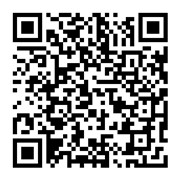情态动词的用法归纳_常用的情态动词八个用法

英语中有一类特殊的词汇,被称为“情态动词”(Modal verbs)。这些动词在英语中非常常见,它们主要用于描述“能力”(Ability)、“可能性”(Possibilities)、“责任义务”(Obligations)、“许可”(Permission)等。下面我们将详细探讨这些情态动词的用法。
注意事项
——
1. 情态动词不随主语人称以及数量的改变而改变;
2. 情态动词的否定与疑问形式不需要助动词do。
——
1. 能力(Ability)
表示能力的情态动词有can,以及其过去式could。
Can
Can表示某人能做某事。
例如:I can drive a car.(我会开车。)
Can't / cannot
Can的否定形式为can't或cannot,表示某人不能做某事。
例如:I can't play football.(我不会踢足球。)
Could
Could是can的过去式,用于描述过去的能力。
例如:I could run fast when I was young.(我年轻时能跑得很快。)
2. 许可、请求与提供(Permission, requests, and offers)
情态动词如can,could,may,shall,will等,都可以用于表达许可、请求和提供的语境。
例如:
Can I have some water?(我能喝点水吗?)
Could you please help me with this box?(你能帮我搬一下这个箱子吗?)
May I reserve a table for tomorrow?(我能预订一张明天的桌子吗?)
3. 建议(Suggestions)
情态动词should,ought to,could,must等常用于提供建议。
例如:
You should eat more vegetables.(你应该多吃蔬菜。)
You ought to take care of yourself.(你应该照顾好自己。)
Could you consider using a different method?(你能考虑用不同的方法吗?)
4. 责任与义务(Obligations)
Must和have to常用于谈论责任与义务。
例如:
I must study hard.(我必须努力学习。)
I have to finish my work by the end of the week.(我必须在周末之前完成我的工作。)
5. 逻辑减弱(Logical deduction)
Might,could等情态动词常用于讨论事情的不确定性。
例如:It might rain later.(可能之后会下雨。)
He could be busy right now.(他现在可能很忙。)
6. 可能性(Possibility)
"现在"的可能性常用might + 动词原形表达。
例如:It might be a good idea.(这可能是一个好主意。)
"过去"和"将来"的可能性则通过情态动词的时态变化来表达。




